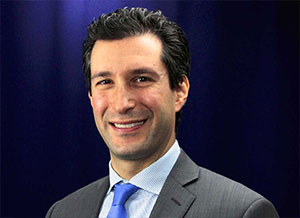Diagnosis and Treatment for Macular Degeneration
How is Macular Degeneration diagnosed?
When seeing an eye care professional, you should receive a comprehensive eye examination. This will perform a retinal examination to help diagnose macular degeneration. If a wet macular degeneration is detected or suspected a special test will be performed, which is called “fluorescein angiography”.
Many people ask, “What causes macular degeneration?” The answer is, there is no one certain thing that causes macular degeneration. However, there does appear to be certain risk factors, some of which include:
• Smoking
• Age
• Gender (women have a slightly higher risk)
• Family History
• High Cholesterol
• Caucasians – (are more like to have macular degeneration than African Americans)
• There are also suggestions that the following have been factors associated with increased risks: visible and UV light, low consumption of fruits and vegetables, light skin color and if you have blue eyes.
Can Macular Degeneration be treated?
Currently, there is no treatment for dry macular degeneration. However, if you have wet macular degeneration, there are intraocular injections that are the mainstay of treatment. Some of these are Avastin®, Lucentis® and Eylea®. One must know that vision that has already been lost may be restored in “some” patients, but not all. If vision cannot be restored, there are low-vision aids that exist that can help improve the quality of life.
Age-Related Macular Degeneration Awareness
 Carl Danzig, M.D.
Carl Danzig, M.D.
Director, Vitreo-Retinal Services
As we turn the calendar to February, the brutal winter continues to pummel our friends and families in the North, while we enjoy the warmth and sunshine down here in Florida. For many Americans, and many of my patients, life can be difficult due to Age-related Macular Degeneration (AMD).
Millions of Americans are affected with approximately 200,000 new cases of AMD being diagnosed every year. Macular degeneration is the leading cause of blindness in this country; however, the majority of patients with AMD never go blind. AMD affects the macula, the area of the retina that is responsible for sharp, central vision. Symptoms may include a change a vision or new waviness to what should be straight lines. Smoking is the only known risk factor that we can modify ourselves. Other factors such as race and family history are out of our control. In patients with AMD, retina specialists recommend eye vitamins with the label AREDS 2 (which stands for Age Related Eye Disease Study 2). It is important to have regular dilated eye exams to check for AMD and imperative if you experience any of the above symptoms. Early detection can mean the difference between saving vision and losing vision.
Macular Degeneration & Low Vision Awareness Month
It’s Age Related Macular Degeneration & Low Vision Awareness Month. The Rand Eye Institute would like to make sure that everyone stays up to date with the risks that come with age and your eyes. Stay tuned for more information about this month’s topic.
Custom Laser Cataract Surgery
While cataract surgery has been one of the safest and most successful operations, this bladeless, advanced procedure, brings a new level of precision to the surgery, creating a personalized surgical experience. It is a major improvement in the ability to treat astigmatism more accurately.
Glaucoma Awareness Month
 Irving Estrin, M.D.
Irving Estrin, M.D.
Assistant Medical Director
This month is Glaucoma Awareness month, which is sponsored by the American Academy of Ophthalmology.
The diagnosis of glaucoma is something that is very difficult for most people to grasp. Glaucoma is one of the leading causes of blindness in the United States.Most of the patients who presently have glaucoma are totally unaware that they have this disease. Glaucoma usually is a disease that is without pain and silent when it comes to any signs or symptoms.
Most people that are diagnosed with glaucoma visited their eye doctor and came out with the surprising results of glaucoma. This unfortunately leaves many people in the United States without appropriate treatment. Most people should be aware that after age forty, they should have at least a bi-annual eye exam and by age sixty, an annual eye exam. Clinical eye diseases are detectable only through proper eye doctor examination. Since glaucoma is painless and not seen until it is fairly advanced by the patient, one should be cognizant that their eye exam should be done on a regular basis.
This disease continues to be a leading irreversible cause of blindness unless detected and treated at an early stage in its development. About one out of six people in the United States will develop glaucoma at some point in their lives. I suggest there should be an eye exam done on a regular basis through their eye care professional and starting in their early forties.
Wishing Everyone Happy Holidays and a Happy New Year
From the sunny weather in South Florida, the Rand Eye Institute would like to wish you Happy Holidays and a Happy New Year!
Veterans Day
Veterans are around us every day. They are our neighbors, relatives, co-workers and friends, whether you are recently returning from combat or have been out of the service for a number of years, you are always a part of the military family. Thank you to all the veterans who fought for our country’s freedom and to all the men and women who are currently sacrificing their lives to keep us all safe. We have the utmost love and respect for every one of you and can’t thank you enough.
So Thank you for your sacrifices and your love for this country. Whether you were drafted or volunteered, you will always be a hero.


